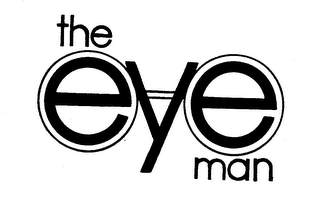The case of C21FC LLC v. NYC Vision Capital Inc., No. CV-22-00736-PHX-SPL, shows ownership of registered trademark rights can be lost by not recording the relevant trademark ownership transfer document with the U.S. Patent and Trademark Office (USPTO).
In that case, plaintiff C21FC entered into a franchise agreement with NYC Vision Cap. Inc. (NYCVC) for a franchise under the mark The Eye Man. Two weeks later, on July 13, 2021, co-plaintiff C21VX executed an asset purchase agreement (APA) to buy another optical service business named The Eye Man. On the same day, the Eye Man’s sellers and Mr. Singer, C21FC’s principal member, also executed a Trademark Assignment (Assignment) to assign all rights and interests in The Eye Man trademark, goodwill, and business to Mr. Singer.
But a bank that provided financing to NYCVC for the franchise transaction requested that the assets purchased under the APA be owned by NYCVC so that there would be sufficient collateral. So an Amendment to the APA was executed later on the day the APA was executed, substituting NYCVC as the “Buyer” in the APA in place of C21VX.
A dispute arose over who owned The Eye Man trademark, among other matters. The Plaintiffs asserted the Amendment inadvertently failed to differentiate between the physical assets, which were to be transferred to NYCVC, and the trademarks, which were to be owned by C21VX. But NYCVC argued that the Amendment effected the sale of all The Eye Man’s assets to NYCVC.
The court found that the Amendment did “what it says it does: to substitute NYCVC as the Buyer in the APA in all respects, including as the buyer of The Eye Man’s intangible assets.” The court found that the Trademark Assignment, which appears to have been executed before the Amendment, did not change the outcome. The court found that the Trademark Assignment was likely void as against NYCVC under 15 U.S.C. § 1060(a)(4). That statute provides that “an assignment shall be void against any subsequent purchaser for valuable consideration without notice, unless the prescribed information reporting the assignment is recorded in the United States Patent and Trademark Office within 3 months after the date of the assignment or prior to the subsequent purchase.”
Here, Mr. Singer did not record the Assignment at the USPTO. And, there was no evidence that defendants became aware of the Assignment between the execution of the Assignment and the execution of the Amendment. Therefore, the later Amendment gave NYCVC ownership of the trademark and the earlier unfiled Assignment was void as against the defendants.
Trademark Registration Ownership Recording System
15 U.S.C. § 1060(a)(4) provides that if an assignment is not recorded at the USPTO within three months of the date of the assignment, it will not be superior to rights obtained by a third party subsequent for value if that third party did not have knowledge of the unrecorded assignment.
This provision is similar to many state-based systems of recording ownership of real estate.
Section 1060(a)(4) encourages trademark owners to file (record) evidence of their ownership of a trademark with the USTPO. This allows parties who enter into transactions regarding those trademarks to look to the public record to determine whether the party they’re dealing with is the actual owner or not.
The recording system discourages a seller from selling rights to a first party and then selling the same rights to a second party . The first party will have an incentive to record that transfer with the USPTO because of the protections provided by section 1060(a)(4).
Record
Therefore, when purchasing registered trademark rights (or rights in a mark with an associated pending trademark application) it is important to record at the USPTO the assignment (or other transfer document) transferring those trademark rights. Otherwise the purchaser could lose rights in the trademark(s) to someone who purchases rights in the trademark later without knowledge of the prior ownership/assignment.
